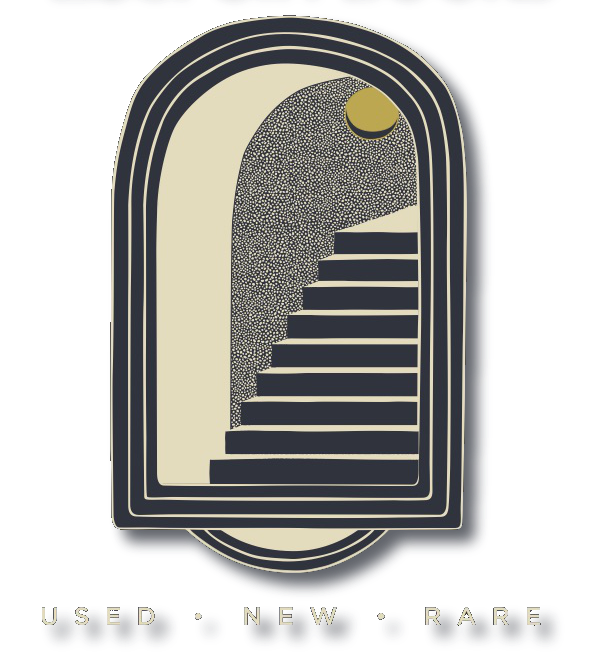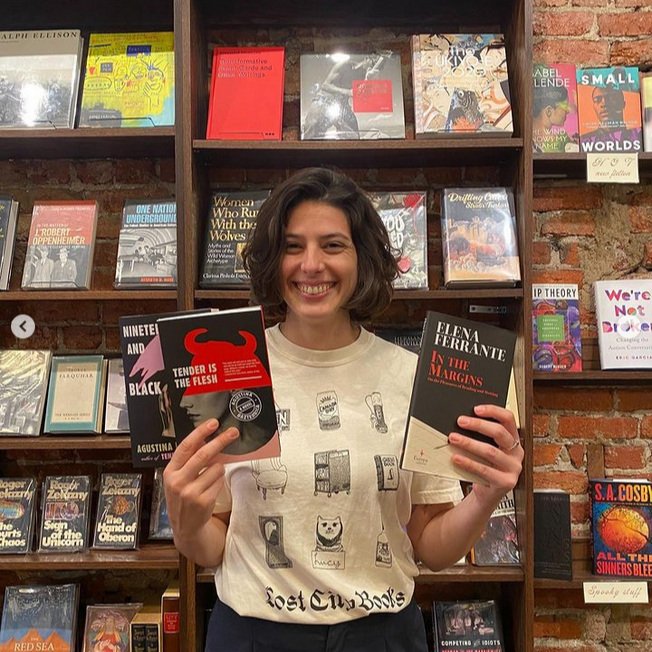talita’s staff picks
Talita (she/her) joined the team in May of 2023 after spending her first year in DC dreaming about what working at Lost City Books would be like. As a Brazilian, she loves Latin American literature, with Clarice Lispector, Conceição Evaristo and Guimarães Rosa at the top of the list. Besides textbooks for her International Relations degree, she gets inspired by Joan Didion’s and Ursula K. Le Guin’s essays and has discovered the beauty of English-written poetry thanks to Ocean Vuong. Creative writing—especially in English—is her new challenge and goal.
The Souls of China by Ian Johnson
I know it might be my 4th or 5th staff pick on China. But reading while exploring China was a way to feel less lost in translation, or to feel less ignorant of this fascinating ancient civilization. The way people deal with faith, beliefs, and religion has always intrigued me. "Souls of China" challenges our own perception of religion and faith. Open your mind, take a seat and happy readings!
Country Driving by Peter Hessler
You probably read or at least heard about tons of books on roadtrips or hitchhiker's adventures across America, Europe or even Latin America. In this book, Hessler goes beyond the common sense road trips. He describes his weekends (or longer trips) departing from Beijing and driving along China's Great Wall. It is a trip through time, space and history!
Bliss Montage by Ling Ma
First, I read Severance. Ling Ma got me by her first novel, a blend of fiction, fantasy and a creative epidemic narrative. Then, I read Bliss Montage, which took me away. This short story book reminded me why I love so much short stories' books. I recommend breathing some air after between stories. You will feel moved, disturbed, wanting more.
The Dark Side of the Skin by Jeferson Tenório
If you like to be disruptive and read banned books, please, take this one. I am not recommending it just because of that, but Tenorio's narrative is just precise, sharp, deep. The book was pretty well translated into English by Bruna, so I read it in English first. Take a sit, brew a coffee, listen to Pedro's story on how to be black in Southern Brazil. But the book is not just about being black. It's about feelings, pain and glory.
THE MAN WHO LOVED DOGS by Leonardo Padura
This book made me cry. This book made me feel deeply intrigued: which part is history, which part is a novel? Padura combines both so well that I bet you will google the facts to check and distinguish one from the other. It is a perfect combination of reading history with the pleasure of literature. Meet Ramon Mercader, his dogs and discover how he was trained to murder Trotsky.
I’M A FOOL TO WANT YOU by Camila Sosa Villada
If that is true that we are experiencing a new “boom latino”, Camila is definitely part of it. Her writing is acid, sharp, funny and tragic at the same time. She knows what she is telling, but she also knows how to open a door of the reader’s imagination. I would say that there is a touch of “realismo magico” with pure reality. She made me meet Billie Holiday in a very realistic way! She shows that she is also great at short stories!







